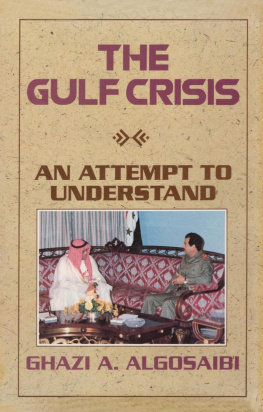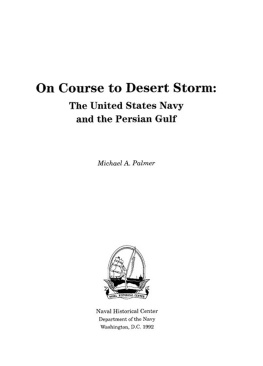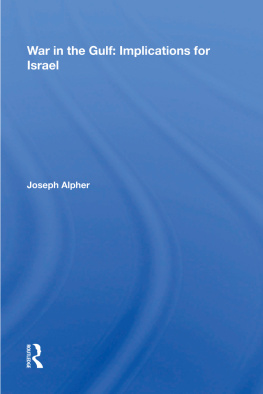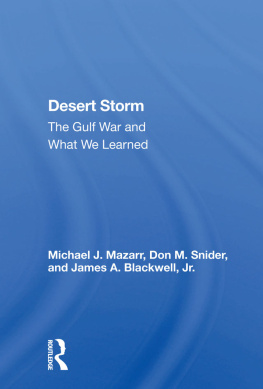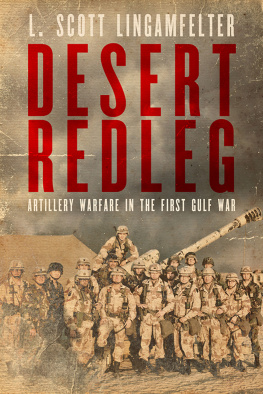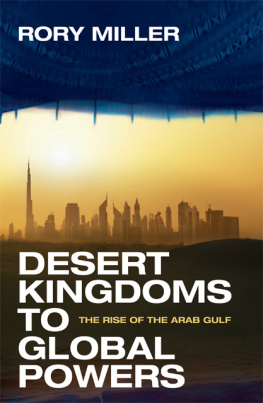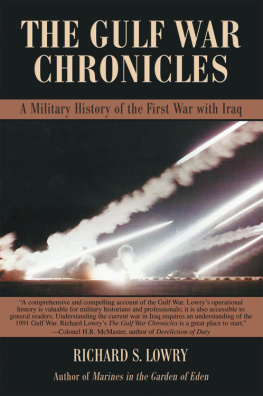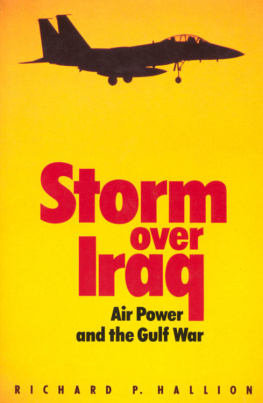
ISRAELI STRATEGY AFTER DESERT STORM
The Begin-Sadat (BESA) Center for Strategic Studies is dedicated to the study of Middle East peace and security, in particular the national security and foreign policy of Israel. A non-partisan and independent institute, the BESA Center is named in memory of Menachem Begin and Anwar Sadat, whose efforts in pursuing peace laid the cornerstone for future conflict resolution in the Middle East.
Since its founding in 1991 by Dr Thomas O. Hecht of Montreal, the BESA Center has become one of the most dynamic Israeli research institutions. It has developed cooperative relationships with strategic study centres throughout the world, from Ankara to Washington and from London to Seoul. Among its research staff are some of Israels best and brightest academic and military minds. BESA Center publications and policy recommendations are read by senior Israeli decision-makers, in military and civilian life, by academicians, the press and the broader public.
The BESA Center makes its research available to the international community through three publication series: BESA Security and Policy Studies, BESA Colloquia on Strateg and Diplomacy and BESA Studies in lntemational Security. The Center also sponsors conferences, symposia, workshops, lectures and briefings for international and local audiences.
Our current research foci are:
Deterrence and Regional Security
Israel Defense Forces of the Future
Israeli Public Opinion on National Security
IsraeliTurkish Strategic Ties
Mldeast Water Resources
Middle East Arms Control
Military Industries
USIsrael Relations
Palestinian Positions and Factions in the
Peace Process
Politicians and the Use of Force
Proliferation and Weapons of Mass
Destruction
Regional Security Rgimes
Space-Based Weaponry
Strategic Options in the Peace Process
Terrorism and Low-Intensitv Violence
ISRAELI STRATEGY AFTER DESERT STORM
Lessons of the Second Gulf War
AHARON LEVRAN
First published in 1997
by FRANK CASS & CO. LTD
Published 2013 by Routledge
2 Park Square, Milton Park, Abingdon, Oxon OX14 4RN
711 Third Avenue, New York, NY, 10017, USA
Routledge is an imprint of the Taylor & Francis Group, an infoma business
Copyright 1997 Aharon Levran
British Library Cataloguing in Publication data
A catalogue record for this book is available from the British Library
Library of Congress Cataloging-in-Publication data
A catalog record for this book is available from the Library of Congress
ISBN 13: 978-0-714-64755-5 (hbk)
ISBN 13: 978-0-714-64316-8 (pbk)
All rights reserved. No part of this publication may be reproduced in any form, or by any means, electronic, mechanical, photocopying, recording or otherwise, without the prior permission of the publisher.
Typeset by Regent Typesetting, London
Contents
The Second Gulf War1 and the Kuwait crisis that preceded it were traumatic events for the Middle East and the entire world. Less than a year had passed since the collapse of the Soviet Union, the Wests celebration of its victory over communism, the dissipation of the global tension of the Cold War and what seemed to be the emergence of a new world order, when an Arab ruler appeared on the world stage and occupied a smaller neighbouring state. For the first time in the history of the region an Arab country erased another sister state from the map and turned it into a province of its own territory. The far-reaching dangers implicit in this grave development, and Saddam Husseins cruelty and megalomania, left President of the United States George Bush no option other than to lead a war coalition of some 30 states, including Arab states, against Hussein the first such event in the history of the Middle East. It is hard to imagine that the United States could have gone to war and assembled such a broad coalition against Saddam if the Soviet Union, Iraqs former patron, had not already collapsed or if the ruler of Iraq had expressed any readiness to reach a settlement.
This war had grave implications for Israel too. For the first time in its history Israel found itself subjected to repeated surface-to-surface missile (SSM) attacks aimed at its civilian population and cities rather than at military targets. It was also the first time Israel had been involved in a war in which it was not a party a war taking place far from its own soil, and one which put Israel in the embarrassing position of not being able to respond to its aggressors. For the first time in its history, Israels population was subjected to the fear of attack by chemical (and possibly biological) weapons. For full discussion of the far-reaching strategic and political implications of this it is necessary to obtain a broader picture of Iraqs true non-conventional arsenal. In any event, we have no intention of discussing the strict professional or operationaltactical implications of the war here, nor of analysing the course of its specific operations. Although the professional-operational level is no less militarily important, it is preferable, from an Israeli point of view, to give serious consideration first and foremost to the general picture, namely the strategic features of the war.
Viewing the war from this angle, three features stand out immediately: the SSM attacks against Israel; the war in the air and the display of technological prowess; and the role (or, regrettably, the lack) of intelligence. It is important to analyse the significance to Israel of these three factors, all of which were conspicuous in the war and have far-reaching consequences for future defence posture.
Similarly, two other factors must also be discussed: Saddam Hussein did not use chemical weapons against Israel or the Coalition, and Israel made no response to the repeated SSM attacks on her civilian population. It is important to analyse the impact of these non-events on Israeli strategy and on its deterrence posture.
After such a critical military event as the Second Gulf War, it is always important to assess the risk and possibility of future hostilities erupting between the Arabs and Israel, especially in the wake of the lessons that the states in the region are likely to have learnt from that confrontation. In view of all this, it is necessary to conclude with a discussion of the implications of the Second Gulf War on Israeli defence theory and doctrine.
Still, a qualifying remark is in order: one must bear in mind that even though much has been written and revealed about the war, only a short period has elapsed since the war at the time of writing, and our information and perspective on the subject may not yet be complete.
It is important, however, for Israel to learn the necessary lessons from any war, direct or indirect. This is particularly so in the case of the Second Gulf War since, as has become clear to many, it came to an end too soon before Iraqs military capability and infrastructure had been sufficiently weakened and it surely did not succeed in removing Saddam Hussein from the arena. This study does not include an analysis of the unsuccessful conclusion of the war (including the failure to remove Saddam), nor does it analyse its objectives since, in our view, these matters fall into the category of strategicpolitical issues. Similarly, we dont intend to dwell here on the purely political aspects and consequences of the war, including the ArabIsraeli political process that gathered momentum in the wake of the war. In any event, examination of the military and strategic implications of the war can make us considerably wiser about the residual threats emanating periodically from Iraq, even after the war, and about current strategic developments involving this country and the overall situation in the region.


